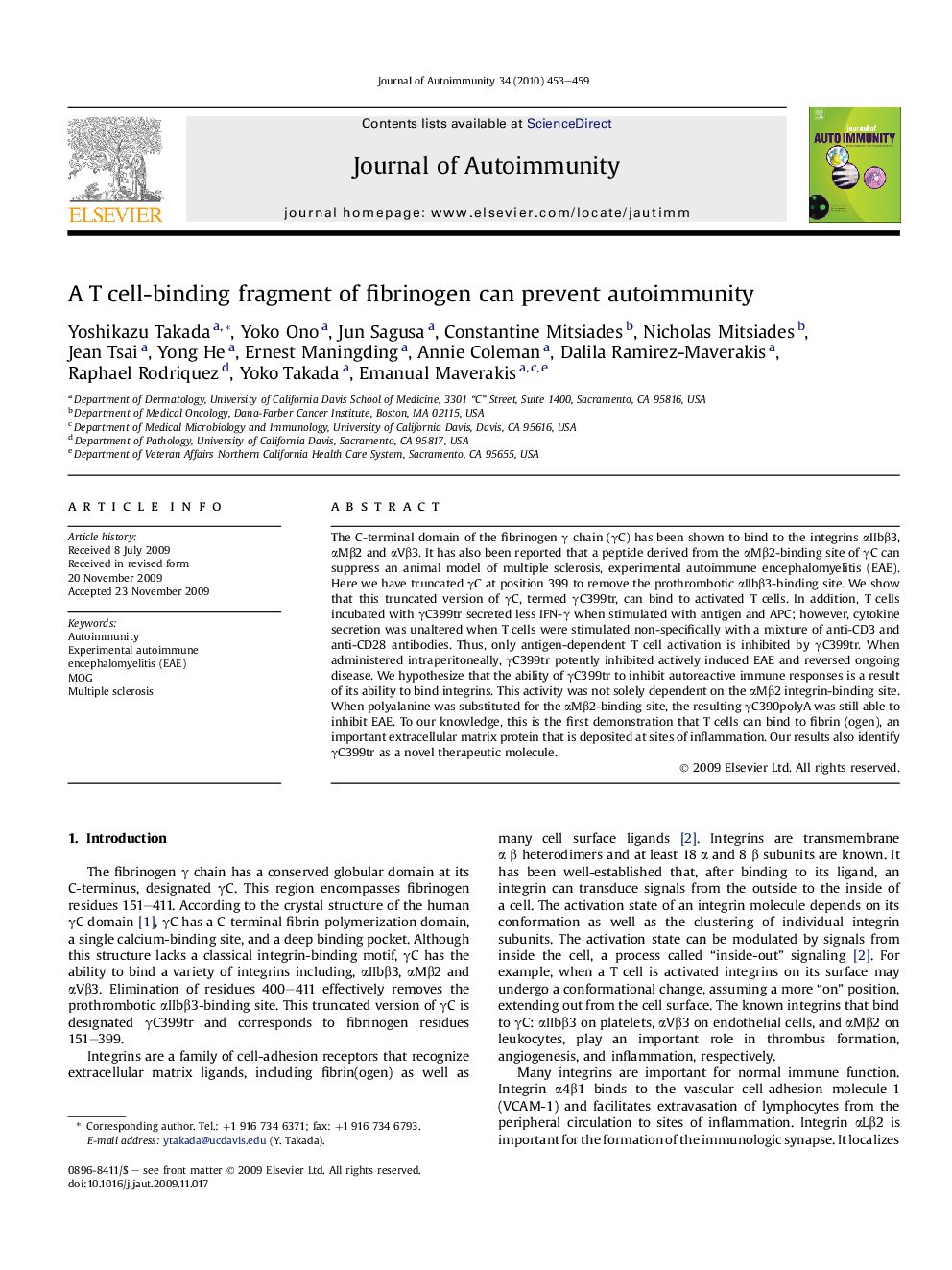| Article ID | Journal | Published Year | Pages | File Type |
|---|---|---|---|---|
| 3368311 | Journal of Autoimmunity | 2010 | 7 Pages |
The C-terminal domain of the fibrinogen γ chain (γC) has been shown to bind to the integrins αIIbβ3, αMβ2 and αVβ3. It has also been reported that a peptide derived from the αMβ2-binding site of γC can suppress an animal model of multiple sclerosis, experimental autoimmune encephalomyelitis (EAE). Here we have truncated γC at position 399 to remove the prothrombotic αIIbβ3-binding site. We show that this truncated version of γC, termed γC399tr, can bind to activated T cells. In addition, T cells incubated with γC399tr secreted less IFN-γ when stimulated with antigen and APC; however, cytokine secretion was unaltered when T cells were stimulated non-specifically with a mixture of anti-CD3 and anti-CD28 antibodies. Thus, only antigen-dependent T cell activation is inhibited by γC399tr. When administered intraperitoneally, γC399tr potently inhibited actively induced EAE and reversed ongoing disease. We hypothesize that the ability of γC399tr to inhibit autoreactive immune responses is a result of its ability to bind integrins. This activity was not solely dependent on the αMβ2 integrin-binding site. When polyalanine was substituted for the αMβ2-binding site, the resulting γC390polyA was still able to inhibit EAE. To our knowledge, this is the first demonstration that T cells can bind to fibrin (ogen), an important extracellular matrix protein that is deposited at sites of inflammation. Our results also identify γC399tr as a novel therapeutic molecule.
